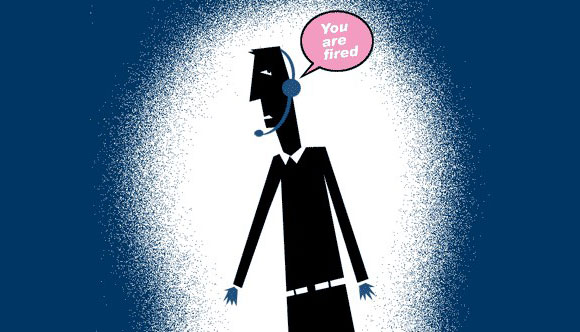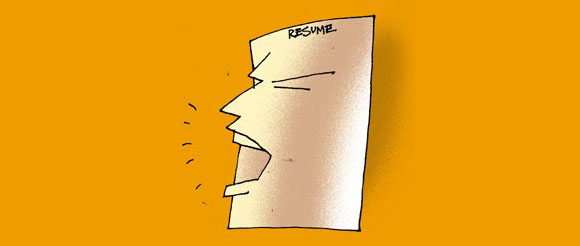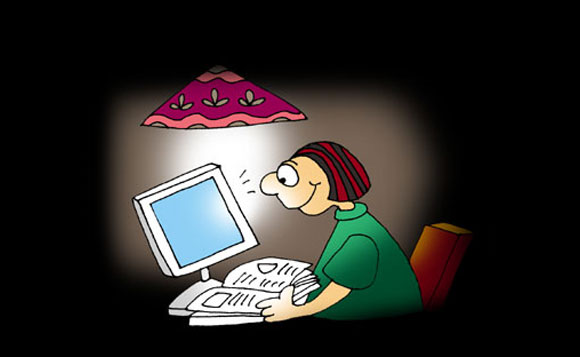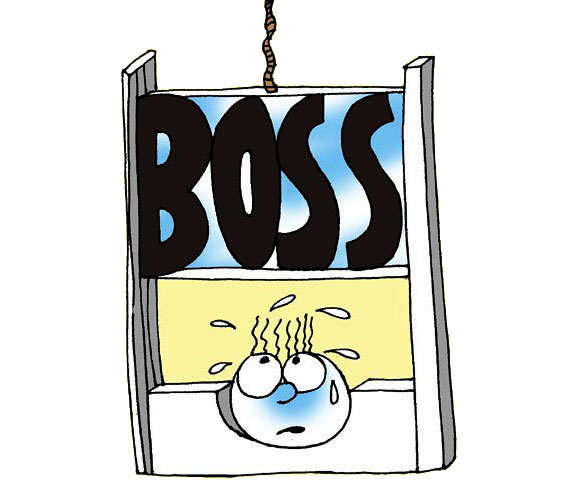
With the job squeeze coming up, it may be a good time to assess your strengths and weaknesses, be prepared and move on if you must. Vikas Shirodkar, Vice President HR, General Motors lists out the ten most practical ways to deal with this impending situation.
For many of us, our jobs define who we are. Our offices are where we spend the most of our waking hours. It isn't also unusual for one to be closer to one's colleagues than one's family. So when the layoffs happen, it is quite understandable that one tends to lose one's bearings.
Vikas Shirodkar, Vice President HR, General Motors tells us ten ways to prepare yourself for an impending lay off.

Very often after a layoff, people tend to wallow in self-pity. You begin to ask yourself why this should have happened to you and not someone else or rue on the opportunities you didn't take up when you had the chance.
While this is quite normal, the sooner you get out of it, the better it will be for you.
The key is to move from 'Why me' to 'Now then'.
Ask yourself 'Now this has happened what should I do?'
Turn the situation on its head and look to the future rather than mull over what has happened in the past.
If you've been laid off, chances are that the organisation has thought this through and has let you go based on your skill set, experience and background not matching with the organisation's new requirement.
So stop brooding over this and move on. It's the best thing you can do. It's also probably the only thing you can do.

We had a Director, Personnel in Siemens who would tell everyone at all levels to keep an updated CV on the top left hand drawer of their tables
As cold as it sounds, the fact is that we are living in uncertain times. When I began my career, layoffs and company closures were rarely heard of. Today they are more frequent because the business environment doesn't allow inefficiencies to continue for a long time. All of us today know many people and aquaintances who have had to face a similar situation.
Layoffs usually don't happen overnight. There are host of signals, which you can pick up before the axe falls.
Should it fall on you, you shouldn't lose time in preparing your CV. Rather than creating a CV under mental pressure, it is better to have an updated list of your achievements and capabilities so that you are putting your best foot forward in a positive frame of mind. Layoffs are inevitable and you should be prepared for it.

It is normal to feel negative about the company that has laid you off.
However it is also crucial not to talk ill about it before your prospective employers or your peers.
Understand that even the new organisation you are looking to join or have joined will not guarantee a life long job.
Also your prospective/new employers will also be judging you to see how deal with punches and accept these things and deal with the problem. Especially in an interview situation, avoid spending time debunking your existing organisation, rather spend time talking about your achievements.
When you talk ill about your company, you are also talking ill about yourself and your association with the company.
The fact is if you hadn't been laid off you would have probably been working there itself. Chances are you've had a good run while you were there. So why would you devalue your experience there?
Also, if you think the company was bad the next question any prospective employer would ask you why you worked there for so long in the first place?

The right time to build friendship is when you don't need it. Only then will you get help from friends when you need it.
On many occasions one gets 'friend requests' from people only when they are looking for a job. This doesn't necessarily leave a very good first impression.
You need to be there, add people to your network and keep in touch so when you ask them if they have a job in mind, they have a different outlook towards you.
It is also important that your profile is updated, you have the right data and your achievements are listed properly.
It is also crucial to have the right keywords in your profile because recruiters usually look for profiles based on keywords.
Professional networking sites are also a treasure house of data and information about job search. So it helps to be online even under normal circumstances.

It is most likely that one's next job will be in the same industry as one's previous job.
So it helps to know what is going on in one's industry: for instance the company that may have got a big order for financial outsourcing may be the one to approach when you are faced with a lay off.
The good time to start doing it is now... and keep doing this on a regular basis. Have a dossier, keeping visiting cards properly and be in touch so if you want to reach out, you have one or two contacts on the top of your head in all the relevant companies.

It is important to get feedback not just about your performance but also about your department as well as your company.
It is crucial for instance to know what the management thinks of your department. Sometimes there are certain areas of operation are not viable even though the division itself may be getting profits.
Understanding how your department is perceived will also help you prepare for the falling of the axe if that is to happen.

Very often we tend to blame our bosses for our layoffs. But the fact is that our bosses too are part of a system and sometimes laying off isn't always in his/her hand. For all you know, your boss is equally at the receiving end of the layoff.
So don't perceive your boss to be your enemy. It is important to be close to him/her be his/her confidant and the person who s/he reaches out to when s/he talks to or any difficulties that will probably be coming down your stream.
Also understand that when your prospective employers do a reference check, your boss will probably be the first person they'd be calling.
Hence, manage the boss relationship in such a way that even after you exit, s/he speaks good about you and your capabilities.

When you get nominated to attend a seminar or an industry event, try and see how you can leverage that time rather than just seeing it as a day away from work and an opportunity to have good lunch.
Take responsibility and be actively involved in such events. See and be seen. Make a positive impression on the people around you and build contacts. This is the best opportunity for you to demonstrate your leadership before an audience larger than your own company.

When you get laid off, one of the first things you need to remember that this has happened to much better people.
Everyone suffers from setbacks. Even Steve Jobs suffered from them as did Amitabh Bachchan.
Don't get defensive about it or explain it away by saying 'I don't know how it happened'. It is a factual thing and when you are appearing for interview don't be negative or defensive about it. See instead, how you plan to come out of this situation.

It may be a cliche but it is true nonetheless. Every time one door closes, another opens up. If you keep staring at the closed door, chances are you won't see the other doors opening around you. So don't be so involved with your situation or be so emotional about it that you don't recognise the positive things around you.
Every full stop is a start of a new sentence. See the bright side of things. See that hiatus as an interval rather than a full stop, give yourself an opportunity to regroup, think of it as a chance to take stock of your capabilities and take it forward rather than seeing it as a problem.
Look at it as a positive opportunity than just seeing it as a closed door.